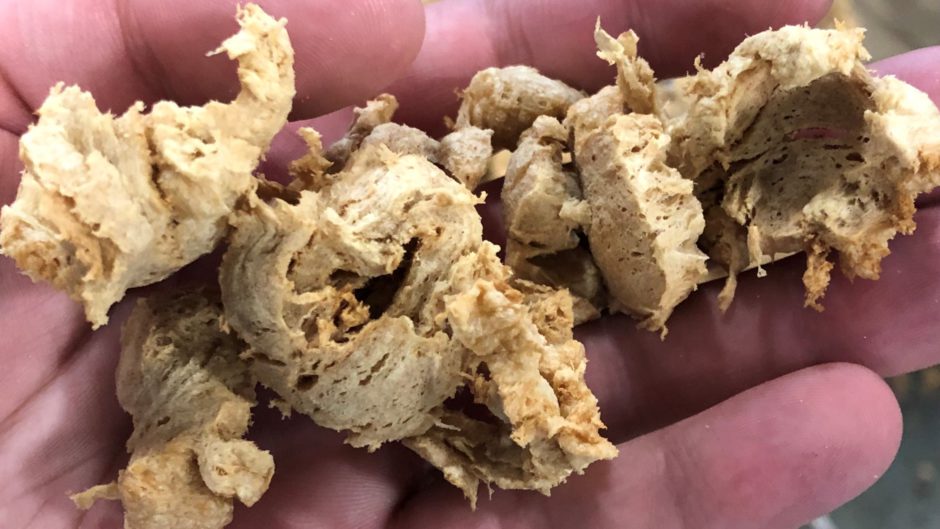Texturized Soy Protein from High-Shear Dry Extrusion Promotes High-Quality Plant-Based Proteins

Consumers today are seeking quality, protein-rich ingredients and buy with an emphasis on sustainably produced food. For nearly 30 years, Insta-Pro ExPress® technology has been utilized to process high-quality, highly digestible soy protein starting with the bean itself. Texturized soy protein (TSP) processed via high-shear dry extrusion is a hexane-free, mechanically processed soy protein in comparison to traditionally processed TSP, which relies on the use of environmentally harmful organic solvents, namely hexane. This blog will focus on the ExPress® texturization process and how it translates into a high-quality, nutritious protein source.
The first step is soy flour processing via ExPress®. Soybeans are dehulled and ground, followed by cooking via high-shear dry extrusion and mechanical de-oiling, which produces the ingredient ExPress® soy flour. The flour undergoes a second extrusion step, again with a single screw dry extruder, although steam preconditioning may be used ahead of extrusion, which produces the final TSP.
Due to the flexibility of the extrusion process, the final form, product density, and other characteristics, such as protein dispersibility index (PDI), can be adjusted to meet market specifications. The primary quality differences in ExPress® TSP vs hexane-extracted TSP are summarized in the table below.

The primary end use of the TSP is as an ingredient in protein products (i.e. meat extenders, protein bars, etc.) or as a stand-alone plant-based analog to traditional meat (i.e. TSP chunks). It is also important to note that the ExPress® soy flour has been a unique high-quality ingredient used in bakery applications (added to wheat flour to extend loaves of bread) and soy beverages.
A high-quality and nutritionally consistent TSP relies on the use of the ExPress® and high-shear dry extrusion process, which is controllable and reliable.



